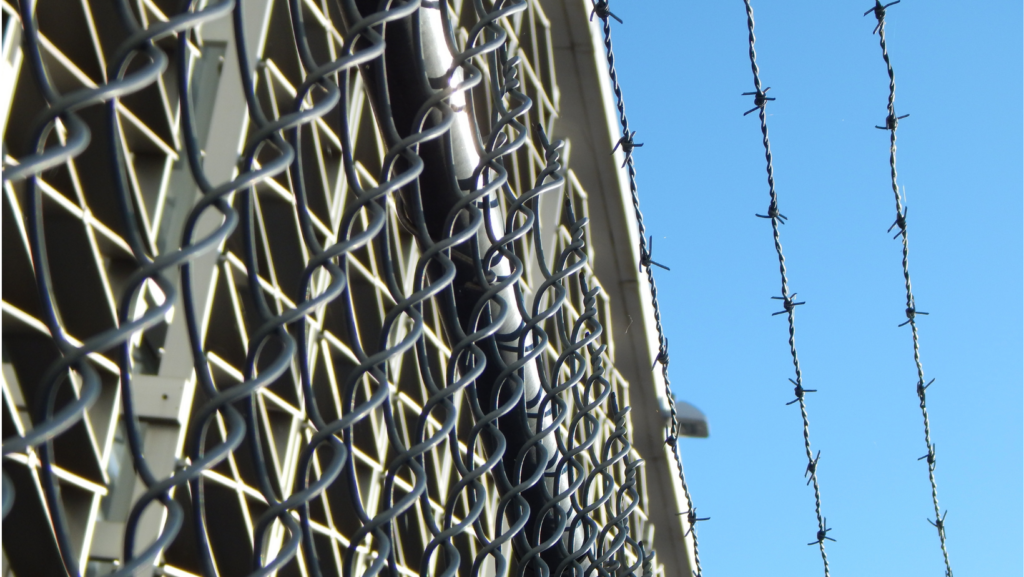
Louisiana’s prison system needs to be more meticulous when it makes changes to sentences for good behavior and other credits, according to a new report the state legislative auditor released Monday.
Some people can earn earlier release based on their accomplishments while incarcerated — such as taking educational classes and complying with prison rules — while behind bars. But the auditor found the Department of Public Safety and Corrections didn’t properly scrutinize those types of backend sentence adjustments.
The auditor reviewed a small number of prison files – 18 cases from the first half of 2022 – and found no inaccuracies in those late sentence adjustments by prison staff. But half of the changes didn’t appear to have been reviewed by anyone other than the staff member who made them.
“Without an adequate review process in place, there is an increased risk that errors in offender records in the system will not be identified and corrected in a timely manner,” the auditor wrote in the report.
It’s the third time the auditor has asked the prison system to add more safeguards for backend sentence changes. In response to this audit, prison officials said they would include more formal oversight of those adjustments, including putting a written policy in place.
SUPPORT NEWS YOU TRUST.
“[T]o further reduce the risk of error, the Department plans to dedicate a position solely to the role of additional review of subsequent changes to time computations,” Jimmy LeBlanc, head of the prison system, wrote in a letter to the auditor.
The scrutiny comes after years of outrage over the way Louisiana handles its calculation of prison time overall.
Several reports have detailed faults with the prison system’s management and sentencing computations that routinely lead to people being held n prison long after they should have been released.
A federal investigation found Louisiana prisons kept a quarter of incarcerated people released during the first four months of 2022 about a month longer in prison than it should have. Investigators concluded the state’s corrections agency continuously violates the constitutional rights of people it incarcerates, according to a report released in January.
“[Louisiana’s prison system] has persisted with these unconstitutional practices despite at least a decade of notice and clear recommendations for fixing the problem,” the federal report reads. “[The prison system] must act to end the overdetention of people in its custody.”
The 5th U.S. Circuit Court of Appeals in New Orleans also appeared to be losing patience with Louisiana prison officials last week when it issued an opinion regarding a specific case of an incarcerated person who couldn’t get his time in an Arkansas prison credited toward his Louisiana sentence — as legally required.
“[O]ur Court remains plagued by claims arising from inexplicable and illegal overdetention in Louisiana prisons, explanations scarcely arise, let alone satisfy scrutiny upon our review,” the panel of judges wrote.
“The problem is endemic in Louisiana, where the process for calculating release dates is so flawed (to put it kindly) that roughly one in four inmates released will have been locked up past their release dates—for a collective total of 3,000-plus years,” the judges said.
GET THE MORNING HEADLINES DELIVERED TO YOUR INBOX
In response to the audit released Monday, LeBlanc said the prison system is adopting a new “time computation platform” called Mi-Case that will automate sentencing calculations. He didn’t say when the new program would come online.
“The Department is currently in the final testing phase for the implementation of the Mi-Case automated time computation functionality,” LeBlanc wrote.
The prison system’s current program for tracking sentences, the Corrections and Justice Unified Network (CAJUN), has been in use since 1991. Investigators believe its limitations have contributed to over-detention. Prison staff members are required to manually enter much of the information its uses.
Federal investigators also expressed concern over the prison system’s plans to use Mi-Case. They said the new system won’t do enough to streamline the sentence computation process.
“[Louisiana’s prison system] also plans to incorporate a stand-alone time computation component into [an existing system] that is being developed by a third-party vendor, Mi-CASE, which is designed to perform automated calculations of inmates’ sentences, jail time credits, and release dates,” reads the federal report.
“This approach is highly unusual. Generally, states will acquire a full-scale system from a vendor that incorporates all necessary functions in order to avoid potential data transfer and data tracking issues between multiple systems,” said the investigators.
SUPPORT NEWS YOU TRUST.
This post was originally published on this site be sure to check out more of their content.








